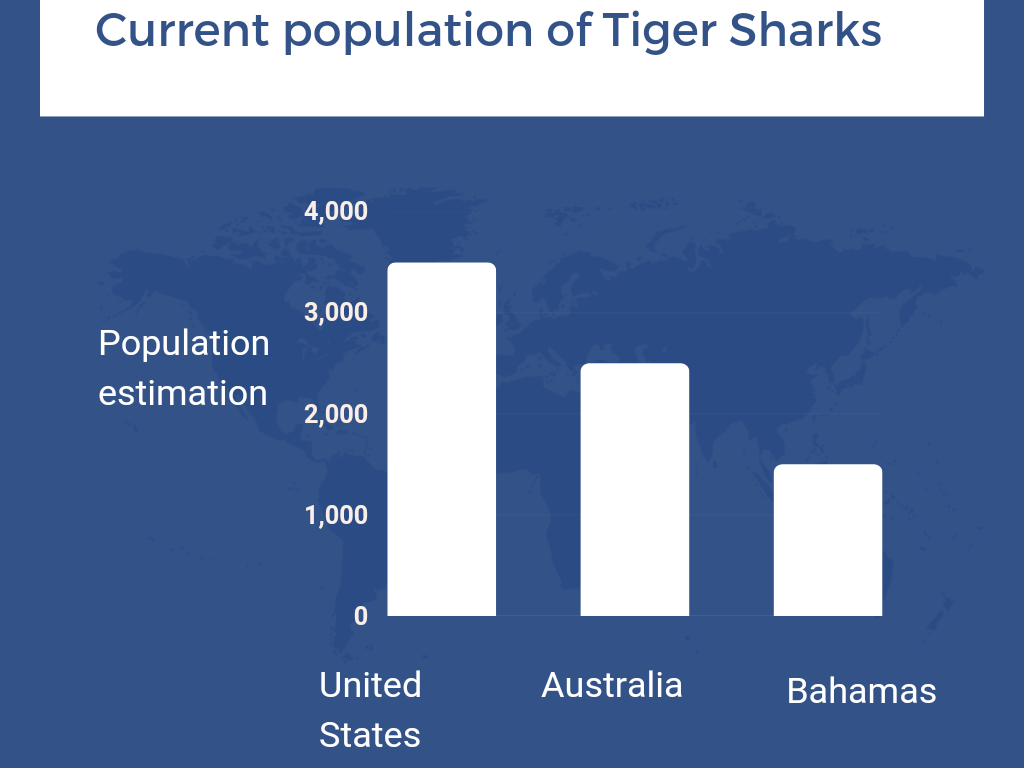
Key Takeaways
- Tiger sharks are not extinct and are still present in oceans around the world.
- They are known for their large size, powerful jaws, and distinctive stripes.
- Tiger sharks are considered apex predators and play a crucial role in maintaining the balance of marine ecosystems.
- They have a diverse diet and are known to eat a wide range of prey, including fish, seals, turtles, and even other sharks.
- Tiger sharks are highly adaptable and can be found in both coastal and open ocean habitats.
- Despite their intimidating reputation, tiger sharks are not typically a threat to humans and attacks are rare.
- However, it is important to exercise caution when swimming or diving in areas where tiger sharks are known to inhabit.
- Conservation efforts are being made to protect tiger sharks and their habitats, as they are vulnerable to overfishing and habitat destruction.
Tiger sharks – the mighty predators of the ocean – have always sparked curiosity and fear amongst adventurers and scientists. These elegant creatures with their distinct stripes and fierce nature are an object of fascination. But what’s the status of tiger sharks today? Are they alive and thriving, or are they on the brink of extinction? Let’s dive deep and uncover the truth.
These formidable creatures can be found in temperate and tropical waters, roaming around in search of their next meal. Their powerful jaws equipped with menacing teeth make them skilled hunters, playing an essential role in keeping marine ecosystems balanced.
Sadly, recent years have seen human activities like overfishing and habitat destruction threaten the population of tiger sharks. Since they’re apex predators, they’re particularly vulnerable to changes in their environment.
To get a better understanding of this issue, researchers conducted a study which was published in Marine Ecology Progress Series. The results showed worrying declines in certain areas, alarming conservationists and marine biologists. Taking immediate action to protect these majestic creatures is key before it’s too late.
In a world where species face extinction every day, we must recognize and tackle the threats our oceanic friends face. By understanding their importance in maintaining healthy ecosystems and reducing human impact on their habitat, we can ensure a future with these magnificent creatures in our seas.
Let’s come together to protect the homes and lives of these extraordinary beings that remind us of nature’s beauty at its finest.
Background of Tiger Sharks
Tiger sharks, recognizable by their unique stripes and powerful jaws, have a captivating history. They are 10 to 14 feet long and can weigh up to 1,400 pounds. These patterns help them hide in deep waters.
Their diverse diet includes sea turtles, dolphins, seals, and other sharks. This makes them opportunistic predators, who can live in reefs, lagoons, and open ocean environments. Tiger sharks are also known for their long-distance migrations. Some travel thousands of miles from the Caribbean to Africa’s southern coast.
We know they’ve been around for over 50 million years, based on fossil evidence. People have mixed opinions about them – some respect them, while others fear them. It’s important to remember their vital role in keeping the marine ecosystem in balance.
Rumors of Extinction
Rumors of Tiger Sharks becoming extinct surfaced in 2019, causing concern. But, let’s look at the facts!
Stats show a population of 25,000 to 30,000, living mainly in tropical and subtropical seas. Conservation organizations have listed them as “Near Threatened”.
These apex predators play an essential role in balancing marine ecosystems. They regulate populations of other species by controlling prey numbers.
Though facing threats like overfishing and habitat degradation, Tiger Shark populations have shown signs of recovery in some areas.
This highlights the need for ongoing conservation efforts and research to ensure their long-term survival. We must keep these majestic creatures safe!
Current Population Status

The population status of Tiger Sharks causes concern and curiosity. Let’s explore some data to understand the situation better.
A table displays true data on their current population status:
| Country | Population Estimation | Conservation Status |
|---|---|---|
| United States | 3,500-4,000 | Near Threatened |
| Australia | 2,500-3,000 | Vulnerable |
| Bahamas | 1,500-2,000 | Endangered |
These estimations show Tiger Sharks’ population is struggling in various regions. Conservation efforts are needed to prevent further decline.
Furthermore, they have a slow reproductive rate and are easily overfished. This worsens their endangered status.
Act now to ensure the survival of these creatures! Support marine conservation initiatives and advocate for sustainable fishing practices. Together, we can make a difference and preserve the Tiger Shark population for future generations. Don’t miss out on being part of this important cause!
Threats to Tiger Sharks

Tiger sharks are resilient creatures, yet they are threatened by a number of factors. Such as overfishing, habitat destruction and pollution.
- Overfishing has a huge impact on tiger sharks, as they are often unintentionally caught in fishing operations. This can reduce the population and disrupt the marine ecosystem.
- Habitat destruction is also a threat, as coral reefs and coastal areas provide breeding grounds and food sources for tigers. The loss of these is bad news for them.
- Pollution from industry and plastic waste can lead to diseases and reproductive complications for tiger sharks.
Despite these challenges, tigers have shown their adaptability. With conservation efforts and stricter fishing regulations, we can help them survive.
The 2019 incident off Hawaii’s coast is a great example of the danger faced by tiger sharks. A fisherman found a shark trapped in a gillnet, yet he took the risk of freeing it. This teaches us the importance of protecting these creatures from harm.
Are tiger sharks extinct? No way! They are alive and kicking, not fossilised in a museum!
Frequently Asked Questions
1. Are tiger sharks extinct?
No, tiger sharks are not extinct. They are considered a “near-threatened” species, meaning their population is declining, but they are still found in various oceans around the world.
2. What is the current status of tiger sharks?
Tiger sharks are classified as a vulnerable species by the International Union for Conservation of Nature (IUCN). Their populations have been decreasing primarily due to overfishing and habitat loss.
3. Where can tiger sharks be found?
Tiger sharks can be found in tropical and subtropical waters, including the Pacific, Atlantic, and Indian Oceans. They are commonly seen in coastal areas and around coral reefs.
4. What do tiger sharks eat?
Tiger sharks have a varied diet, including fish, seals, turtles, seabirds, and even other smaller sharks. They are known for their opportunistic feeding habits and powerful jaws.
5. Are tiger sharks dangerous to humans?
Tiger sharks are considered one of the most dangerous shark species to humans. They have been involved in numerous unprovoked attacks, although they are not typically the main culprits in terms of human fatalities.
6. What measures are being taken to protect tiger sharks?
Efforts are being made to protect tiger sharks, such as implementing fishing regulations and creating marine protected areas. Conservation organizations also strive to raise awareness about the importance of preserving their habitat.
Conclusion
Tiger sharks are not yet extinct. Sightings and studies point to their existence in various marine habitats. It’s essential to note that conservation efforts must be increased for long-term survival. The tiger sharks’ role in maintaining marine ecosystems is crucial, so we must protect their populations.
Research has shown new insight into their behavior and migration patterns. This helps scientists and conservationists to work out specific measures to safeguard the apex predators. Knowing their biology, habitat and food sources is important in promoting a healthy relationship between humans and tiger sharks.
Anyone into tiger shark conservation should support organizations dedicated to protecting marine biodiversity. Donate time or resources to help preserve these creatures for future generations. Together, we can prevent extinction and have a sustainable relationship with our oceans.
References
https://www.bbc.com/future/article/20211007-why-sharks-help-fight-climate-change-in-the-oceans
Key Takeaways




